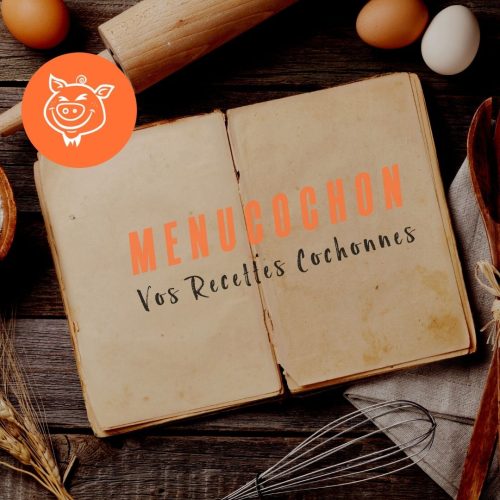Exploring the world through cuisine: a culinary journey of flavors and traditions.
Embark on a mouth-watering adventure into the vibrant world of cuisine, where flavors and traditions from every corner of the globe meet. From the sparkling spices of Mexico to the delicate art of Japanese sushi, our culinary journey will transport your taste buds to exciting new destinations. Join us as we explore the rich tapestry of flavors that define cultures, rekindle memories and bring people together. Discover the secrets behind iconic dishes, learn ancestral techniques passed down from generation to generation, and unravel the stories that make each recipe unique. Whether you're a passionate cooking enthusiast or simply curious about the world's diverse culinary offerings, this exploration promises to awaken your senses and broaden your horizons. So grab your apron and let's embark together on this tantalizing adventure, where the fusion of flavors and celebration of traditions will leave you searching for more. Get ready to experience the world through the universal language of food.
The meaning of cooking in different cultures.
Cuisine is much more than food on a plate. It's a reflection of a culture's history, traditions and values. The way people prepare and consume food tells stories that go beyond taste and food. In many cultures, recipes are passed down from generation to generation, preserving heritage and linking people to their roots. Food is often at the center of social gatherings, bringing communities together and creating a sense of belonging. Through cuisine, we can better understand different societies and appreciate their unique contributions to the culinary world. So let's embark on this culinary journey and explore the meaning of cooking in different cultures.
Food is a universal language that transcends borders and allows us to connect with people from all walks of life. It has the power to bring people together from diverse backgrounds and create shared experiences. Whether at a family gathering, a celebration or a casual meal with friends, food has the ability to foster connection and promote cultural exchange. In many cultures, meals are an opportunity to tell stories and pass on traditions, ensuring that cultural heritage is preserved and celebrated. So, the next time you settle down to enjoy a meal, take a moment to appreciate the significance of cuisine in different cultures and the role it plays in fostering unity and understanding.
Popular culinary destinations around the world.
When it comes to culinary exploration, there are countless destinations around the world that offer a feast for the senses. From bustling street markets to Michelin-starred restaurants, these culinary hotspots are a food lover's paradise. One such destination is Italy, renowned for its rich culinary traditions and iconic dishes. From the savory pasta dishes of Bologna to the sumptuous pizzas of Naples, Italy offers a diverse range of flavors and techniques that will satisfy even the most discerning palate.
If you're looking for a touch of the exotic, Thailand should be at the top of your list. Thai cuisine is a harmonious blend of sweet, sour, salty and spicy flavors, creating a sensory explosion with every bite. From the fiery curries of the south to the fragrant delights of Bangkok's food stalls, Thailand's culinary scene is a delight for gastronomic adventurers. Another culinary treasure trove is Mexico, where vibrant spices and bold flavors reign supreme. From the tangy ceviche of the coasts to the smoky flavors of mole poblano, Mexican cuisine celebrates bold, authentic flavors that will transport you to the heart of Mexico.
Traditional cooking techniques and ingredients.
One of the most fascinating aspects of cooking lies in the traditional cooking techniques and ingredients handed down from generation to generation. These age-old practices are a testament to the ingenuity and resourcefulness of our ancestors, who found innovative ways to transform simple ingredients into extraordinary dishes. Take, for example, the art of sushi-making in Japan. Precise knife skills, meticulous attention to detail and respect for ingredients are all part of an ancient tradition that has been perfected over the centuries.
In India, the use of spices plays a crucial role in creating the distinct flavors that define the country's cuisine. The art of blending spices to create complex flavors is a skill that has been honed over the centuries, with each region having its own unique spice blends. From the hot chillies of the south to the cardamom and cinnamon fragrances of the north, Indian cuisine is a symphony of flavors that will transport you to the bustling streets of Mumbai or the peaceful backwaters of Kerala.
Exploring international flavors and spices.
One of the joys of culinary exploration is the opportunity to discover new flavors and spices from around the world. Each culture has its own unique blend of herbs, spices and condiments that give its dishes a distinct taste. For example, Morocco's aromatic spices, such as cumin, coriander and saffron, add depth and complexity to tagines and couscous dishes. Meanwhile, the pungent flavors of garlic, ginger and chilies are the basis of many Chinese dishes, bringing a touch of fire to stir-fries and noodle dishes.
In the Caribbean, the use of tropical fruits and spices adds an explosion of flavor to dishes. The tangy sweetness of pineapple blends perfectly with the heat of scotch bonnet chillies in Jamaican jerk chicken, while the earthy flavours of Jamaican chilli and nutmeg give Caribbean curries a unique touch. These international flavors and spices allow us to discover the world in a whole new way, broadening our culinary horizons and enhancing our appreciation of different cultures.
Regional specialties and signature dishes.
Each region of the world has its own culinary specialties and iconic dishes that are synonymous with its culture. These dishes often reflect the unique ingredients and traditions of the region, creating a truly unique culinary experience. In France, for example, the buttery croissants of Paris and the creamy cheeses of Normandy are iconic symbols of French gastronomy. Meticulous attention to detail and a commitment to quality are evident in every bite, highlighting the French passion for food.
In the United States, regional specialties vary from coast to coast. Whether it's the thick pizzas of Chicago, the finger-licking barbecues of Texas or the fresh seafood of the East Coast, each region offers its own twist on American classics. These regional specialties not only highlight the diversity of American cuisine, but also celebrate the local ingredients and culinary traditions that make each region unique.
Fusion cuisine and culinary trends.
As the world becomes increasingly interconnected, culinary traditions are merging, giving rise to exciting fusion cuisine. Fusion cuisine is a reflection of our globalized world, where chefs draw inspiration from different cultures to create innovative dishes that push the boundaries of traditional cuisine. This blend of flavors and techniques creates a truly unique culinary experience, where the familiar meets the unexpected.
Culinary trends are also playing a significant role in how food is evolving. From the farm-to-table movement focusing on local ingredients to the rise of plant-based and sustainable eating, these trends reflect our changing attitudes towards food and the environment. Whether experimenting with new ingredients, adopting alternative cooking methods or pushing the boundaries of traditional dishes, culinary trends are a testament to the creativity and innovation of chefs around the world.
Food and travel: planning a culinary adventure.
For many food lovers, combining travel with culinary exploration is the ultimate dream. Planning a culinary adventure allows you to immerse yourself in the local food culture, discover hidden treasures and create unforgettable memories. Before embarking on your journey, it's essential to research your destination's culinary highlights, from street food markets to Michelin-starred restaurants. Consider taking a cooking class or gastronomic tour to fully experience local flavors and techniques.
When exploring new cuisines, be open to trying unusual dishes and ingredients. Embrace local customs and traditions, and don't hesitate to ask locals for recommendations. Remember, the best culinary experiences are often found off the beaten track. So pack your bags, prepare your taste buds and get ready to embark on a culinary adventure that will take you to the heart of a culture.
Tips for recreating international dishes at home.
Bringing the flavors of the world into your own kitchen is a fantastic way to continue your culinary exploration. Although recreating international dishes at home can seem daunting, it can also be a fun and rewarding experience. Start by researching traditional recipes and techniques, and gathering the necessary ingredients. Look for specialty stores or online retailers offering authentic international ingredients to guarantee authentic flavor.
Experiment with different flavors and spices to create your own unique twist on traditional dishes. Don't be afraid to be creative and adapt recipes to your own taste preferences. Cooking is an art, and just like any other art form, it allows for personal expression and experimentation. So don your apron, gather your ingredients and let the flavors of the world inspire you to create your own culinary creations.
Opening up to diversity through food: the social impact of culinary exploration.
Food has the power to bridge cultural divides, promote understanding and celebrate diversity. Through culinary exploration, we can better appreciate different cultures and break down barriers. By embracing the flavors and traditions of other cultures, we show respect and appreciation for their contributions to the culinary world. In a world sometimes divided, food has the ability to bring people together, fostering a sense of unity and shared humanity.
Culinary exploration also has a significant social impact. By supporting local food businesses and farmers, we contribute to the economic growth of communities around the world. Through sustainable and ethical food practices, we can promote
and ensure the preservation of our planet for future generations. So let's continue to explore the world through cooking, not only for the pleasure of our taste buds, but also for the positive impact it can have on society.
Conclusion
As our culinary journey draws to a close, we hope this exploration of flavors and traditions has ignited your passion for cooking and inspired you to embark on your own culinary adventures. The world is vast and diverse, and through food we can experience its richness and celebrate its cultural heritage. From traditional cooking techniques handed down from generation to generation to the fusion of flavors that push the boundaries of traditional cuisine, the culinary world is a treasure trove waiting to be discovered.
So the next time you settle down to enjoy a meal, take a moment to appreciate the flavors, discover the stories behind the dishes and celebrate the diversity that makes our world so extraordinary. Let's continue to explore the world through food, one bite at a time, and let the universal language of food bring us ever closer together. Bon appétit!







